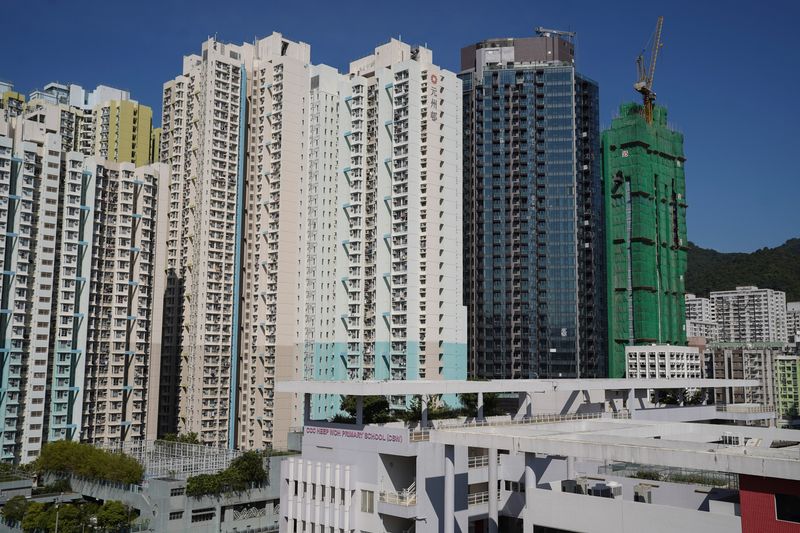HONG KONG (Reuters) - Hong Kong private home prices climbed 2.2% in February, the second straight monthly increase, helped by improving sentiment after the border with China was reopened, expectations that interest rates are peaking, and a spate of new project launches.
The rise in home prices in February followed a revised 1% gain in January and was the biggest since May 2020, official data showed on Wednesday.
The financial hub this month was ranked by survey company Demographia as the least affordable city in the world in 2022 based on property prices versus median income, with Sydney and Vancouver trailing behind. This was the thirteenth consecutive year that Hong Kong topped the ranking.
"Hong Kong has been given a clear responsibility by the central government to improve housing affordability, and increase house sizes", Demographia said in its report last week.
Beijing identified unaffordable housing as a key cause of discontent in the former British colony, especially among the city's youth, and a driving factor in the sometimes violent anti-government protests of 2019.
Some analysts have raised their 2023 forecasts for housing prices in the city over the past few weeks, expecting a reversal after home prices fell around 15% last year. The fall in 2022 was the first annual drop since 2008, with the property market dragged down by a weak economic outlook, rising mortgage costs and a COVID-19 outbreak at the beginning of the year.
JP Morgan analyst Cusson Leung said he expects a 10%-15% rise this year, driven by a slowing pace in interest rate hikes, a stronger economy and increased purchases by non-locals.
"The significant pick up in high-end residential transactions is a strong vote of buying confidence in the Hong Kong housing market," Leung said in a report.
Recent primary housing projects also recorded strong purchase rates at their launches, Leung said.

Realtor Cushman & Wakefield (NYSE:CWK) expected home prices to rise 5%-10% for the full year, revising its previous forecast of a flat market to a 5% drop, and said transaction volumes would rebound 25%-35%.
Cushman & Wakefield said the reopening of borders and the government's recent move to lower stamp duties for first-time home buyers of small- to mid-sized apartments had prompted more purchases in the residential market.